Post Contents
Fistula in Ano Question? and their Answers ::
What is an anal fistula?
- A fistula in ano is a tunnel like- pipe like track, developed in the perennial region, usually having one or more external openings around the anus leading to an internal opening in the mucosa of the anal canal or the rectum.
- Anal fistula is termed “Bhagandara” in Ayurveda. In Ayurveda fistulas, like other diseases have been classified according to the vitiation of one per more of the three doshas i.e. the vata, the Pitta & the kapha. They have been classified also according to the shape & site of the track of the fistula. Special treatment for such different kinds of fistulas is mention in detail. It is worth noting that the complex & most challenging horse shoe fistula ( complex Ischio-rectal fistula) has been dealt with in detail in Sushruta a classical Ayurveda text) even as early as 300 ad.
- The Ksharsutra treatment was probably first advised per this type of fistula named Parikshepi Bhagandara by Sushurta. This Ksharsootra treatment, with a little modification has proved its worth even in modern times.
- Anal fistula, a rare condition, is a chronically inflamed, abnormal tunnel between the anal canal and the outer skin of the anus. It often drains watery pus, which can irritate the outer tissues and cause itching and discomfort.
How does it occur?
- An anal fistula usually results from an infection that forms in the tissue lining the anal canal. The infection may be caused by spread of bacteria that normally exist in the rectum. Occasionally, it may occur as a result of :
A healed sore in the rectal area
Ulcerative colitis, a disease associated with ongoing breakdown of tissues that causes a sore in the lining of the colon
Diverticulitis, inflammation of harmless growths in the wall of the intestines
Crohn’s disease, a chronic inflammation of the intestines
Tuberculosis
Gonorrhea
Cancer of the large intestine.
What are the symptoms?
- Symptoms of anal fistula may include :
A patient of fistula in ano often suffers from a recurrent, small or large boil/boils/abscess surrounding the anus, accompanied with pain, discomfort & pus/blood discharge.
The symptoms subside when the boil / abscess burst spontaneously causing some more discharge for a couple of days.
The boil / abscess “heals up” temporarily but almost always reappears after some times. - Itching, discharge of watery pus, irritation of tissue around the anus, discomfort & pain these are the main symptoms of the fistula in ano
How is it diagnosed?
- To diagnose an anal fistula, the doctor will review your symptoms, give you a physical exam, and may use the following procedures:
Anoscopy / Proctoscopy , a procedure in which the doctor inserts an instrument called an anoscope into the rectum to inspect the anus and lower part of the rectum
Probing examination: a procedure in which the surgeon insert an instrument called anal probe it to the external fistulous opening to internal fistulous opening.
Sigmoidoscopy , a procedure in which a doctor uses a flexible or rigid scope to inspect the lower part of the intestine for inflammation and/or disease
A biopsy to evaluate for inflammation or cancer
Lower gastrointestinal (gi) series, a procedure that uses a special fluid to show the intestines better on x-ray
A lower gi series requires a clean, clear gi tract. The doctor will prescribe a special diet, including plenty of water, for the day before the procedure. In addition, you may be given an enema the morning of the procedure.
Causes of anal fistula?
- In a few cases there is a previous history of ano-rectal abscess.
Some times a fissure in ano/ anal fissure gets infects & the infection travels down to form a track or a fistula. - However in most cases there are no definite causes found.
- Possible contributing factors
Tearing of the lining of the anal canal.
Infection from an anal gland
Chron’s, ulcerative colitis, tuberculosis - Guide lines to approach an expert for investigating a possibility of anal fistula.
- Recurrent boils developing at the same site. (around the anus)
Burning sensation or pain in perennial region
Pus discharge /blood discharge in perianal or from the anus.
Modes of treatments of anal fistula?
- Anal fistulas are almost never found to heal spontaneously. The inner wall of the fistula develops fibers tissue & payogenic membrane not allowing spontaneous healings.
The most commonly followed mode of treatment is laying open the entire track of the fistula and removing the fibrous tissue & payogenic membrane. This sometimes, in complex fistulas is done in two or more sittings. In certain cases a silk setone is passed through parts of the track. (see detail )
The Ksharsutra / Ksharsootra ( Medicated Setone ) Ligation.
Laser Surgery ( Fistulectomy / fistulectomy by laser beam )
Laying open the fistula and applying a skin graft.
Laying open, excision of the fistulous track and suturing the wounds.
Coring out the fistulous track. ( link with core technique for fistula )
Sealing with fibrin glue.
Fistula Plug Management.
VAFT Technique for anal fistula.
Reconstruction with flap surgery for anal fistula. - Ayurveda has a unique way of treating fistula in ano. Simple as well as complex fistulas, high anal fistulas, fistulas with multiple track, recurrent fistulas, chron’s fistula, tubercular fistula, all respond well to the Ksharsutra ligation procedure.
- Kshar Sutra Treatment In High anal Fistula
- Kshar Sutra Treatment In High anal Fistula 2
- Kshar Sutra Treatment In High anal Fistula 3
- Kshar Sutra Treatment In High anal Fistula4
- Kshar Sutra Treatment In High anal Fistula6
- Kshar Sutra Treatment In High anal Fistula7
- Kshar Sutra Treatment In High anal Fistula8
- Kshar Sutra Treatment In High anal Fistula9
- Kshar Sutra Treatment In High anal Fistula11
What is Ksharsutra / Ksharsootra?
- The Ksharsootra /Ksharsutra is a type of thread / medicated setone prepared by coating and recoating the thread 15 to 21 times with different drugs of plant origin. The mechanical action of the treads and the chemical action of the drugs coated on the thread, to gather do the work of cutting, curetting, draining, and cleaning the fistulous track, thus promoting healing of the track/ wound.
- A number of drugs like,
Apamarg kshar (see picture)
Kadali kshar (see picture)
Arka kshar (see picture)
Nimb kshar (see picture)
Snuhi ksheer (see picture)
Udumber ksheer (see picture)
Papaiya ksheer (see picture) - And natural antibiotic like haridra powder, guggulu, etc are used in the preparation of different kind of Ksharsutra. It takes a number of days to prepare this Ksharsutra since the previous coat has to dry before the next is applied.
- Different kinds of Ksharsootra are prepared using different drugs. These Ksharsutra are passed through the track (usually under short anesthesia) and the two ends of the thread are tied forming a loop.
- The drugs coated on the thread are continually released through out the length of the track there by cutting, curetting, draining cleansing and healing the track simultaneously in the track after about eight days the thread loosens because it has cut through some of the tissues and also is now almost bare ( with no drugs on it). A new thread is now replaced in the track by a special method.
- The changing of the thread is a simple opd procedure taking about 1 to 2 minutes and requires no anesthesia.
- the thread gradually cuts through the tissue. The tissues above the thread heal up. Hence when at last the loop of thread comes out, the track is healed.
- Ksharsootra (medicated setone) therapy is practiced in India since times immemorial. Modified and revived by the late Dr. P. J. Deshpande. The Ksharsootra therapy is a unique treatment of Ayurveda gaining popularity globally.
- Special types of medicated setone are used in this procedure Found to be effective in any ano rectal conditions, it has many advantages in the treatment of Anal fistulae.
Benefits of the ksharsutra ligation procedure over other methods in anal fistula?
- The Ksharsootra ligation method is an age old, time tested procedure originally performed by Sushruta (the father of surgery) around 300 ad. The fact that it is still in practice to day is a proof in it self of its efficacy.
- The Ksharsutra procedure is performed under short acting anesthesia / local anesthesia and some times even without anesthesia.
- The procedure usually dose not require hospitalization for more than 4 to 5 hours.
- The patient requires minimal bed rest & can resume his / her daily routine within 12 to 24 hours.
It gives freedom from pain full dressings. - There is no loss of glutial mussels and hence the anatomy of the peri anal region is not distorted. The procedure lives just a pencil scar at the site.
- The recurrence rate which is usually found to be quite high after other methods is less than 2% after Ksharsutra ligation procedure. This is because the medicines on the thread gradually and continually curate the payogenic membrane and fibrous tissue in the track and thus leave no pus pockets un drained.
- Chances of partial or complete incontinence of flatus or / and faces (loss of control of passing stool / flatus) are always present in many types of fistula, (especially in fistulae involving the sphincter muscles after the conventional procedure. ( Fistulectomy Fistulotomy ). There are no chances of developing incontinence in Ksharsutra ligation method.
How can i take care of myself ?
- Using stool softeners Adding fiber to your diet
- Drinking plenty of water, up to 8 eight-ounce glasses a day
- Taking warm baths
- Using clean, moist pads to wipe the area around the anus, to remove irritating particles and fluid from the fistula
- Using special skin creams to soothe irritated tissue.
- How can i help prevent an anal fistula?
- Follow these guidelines to help prevent an anal fistula. They help to keep the lower gastrointestinal tract healthy.
- Eat food high in fiber.
- Drink plenty of water each day (up to eight 8-ounce glasses).
- Have regular physical exams to look for underlying diseases of the rectum.
- Be aware of the signs and symptoms of bowel disease, and seek medical attention if any appear.
Reimbursement and Cashless TPA Health Insurance for the Process Of Kshar Sutra is available now. In NCR, Ghaziabad and Noida
E-mail: info@msarogyam.com Ph:+91 – 9219434343, Mo:+91 – 9412637645,


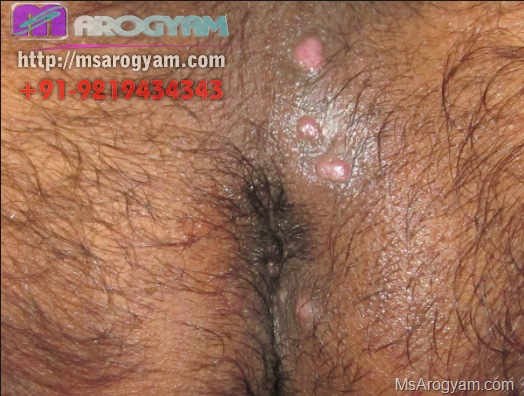
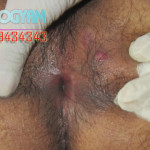
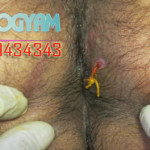
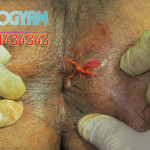
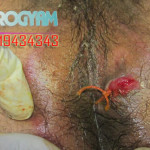
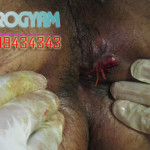
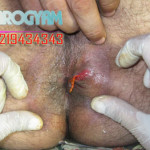
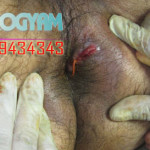
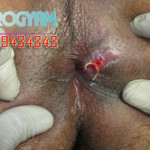
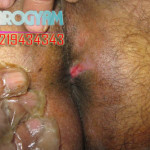

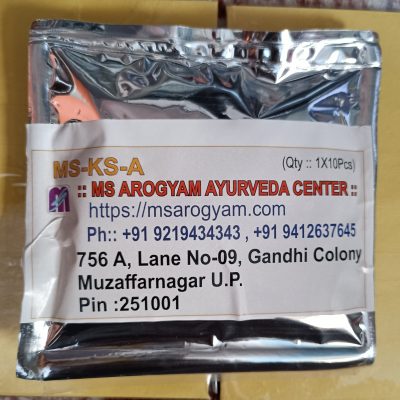




Comment
do u treat in mumbai?
If we visit your place how many days stay is reqd?
What is average time and cost to get cured?
No only current center in UP, and the cost and duration will depends on the case and condition of the patient.
sir my name is kamlesh kumar 30 years old i am a student live in allahabad suffering from anal\ano fistula from 3-4 years.i operated it once time but failure.pls advice me thank u.. so much…9919375336—-8382828750
My army mein service kartha hai merako piles hai kabi kabi kun atha hai us kelie kya treetment karwana hai
Shar shutra se mera bhagndar ka treatment chal rha h dard bahut hota h pls advise de
as you mentioned you are having kshar sutra treatment, ask your doctor, or visit our clinic for best help call :9219434343
Sir mere Anal fissure ho Raha hai isko thik karne ki koi medicine suggest kare.
for fissure use our Ms-Pack-A OR B
Sir,
I have been going through your site from the last one month. Your comments encouraged to go for ksharsutra treatment for my fistula in ano with internal opening at 12 o clock and external at 11 o clock below scrotum. The length of the track is 4cm and its diameter is 3mm as per MRI. Sir, i have some questions in my mind that keep haunting me:
1) Since the diameter of my track is 3mm, will the thread (roughly in dia 2mm) be able to keep in contact with the upper layer of the track which will be nearly 1mm far away from the thread itself. How will it disinfect the upper layer of the track in that case?
2) Does the larger diameter of the track affect the normal working of ksharsutra thread? If no, How?
Keenly waiting for your kind reply.
Regards
Sanjay Bhat
Sir mujhe fistula in ano ka problem he mujhe apka online tretment lena he uska procedure kya he.
Hi first you have to visit us @ our center MsArogyam or at Hospital @ Ghaziabad,
call me for more details
Mo: +91-9218434343, +91-9412637645,
whatsapp :+91-9412637645